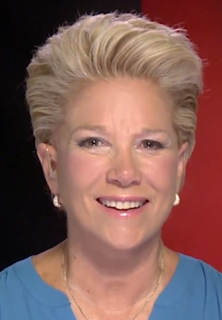A Quote by Lynn Coady
We are all somebody's children, and when we're in pain, we regress, instinctively looking to our parents to make everything better.
Quote Topics
Related Quotes
There’s a belief now that the problem with our schools is parents, that if we just had better parents we would have better performing kids and, therefore, we wouldn’t have a problem at all. But what’s missing in that equation is that you do have a lot of parents in this country who are very involved in their children’s education and who do want something better. They want to see better for their kids. They know that they’re in schools that aren’t performing particularly well and if you look at how we treat those parents, it is quite poorly.
Ask any parent what we want for our children, and invariably we say 'a better life.' To that end, we give our time, our sleep, our money, and our dreams, much as our parents did before us. We all want a better life for our children. But what we want for them ceases to matter if we leave them an unlivable world.
Children grow rapidly, forget the centuries-long embrace from their parents, which to them lasted but seconds. Children become adults, live far from their parents, live their own houses, learn ways of their own, suffer pain, grow old. Children curse their parents for their wrinkled skin and hoarse voices. Those now old children also want to stop time, but at another time. They want to freeze their own children at the center of time.
The fundamental defect of fathers, in our competitive society, is that they want their children to be a credit to them. We all feel instinctively, that our children's success reflect glory upon ourselves, while their failures make us feel shame. Unfortunately, the successes which cause us to swell with pride are often of an undesirable kind.... Neither happiness nor virtue, but worldly success, is what the average father desires for his children.





































